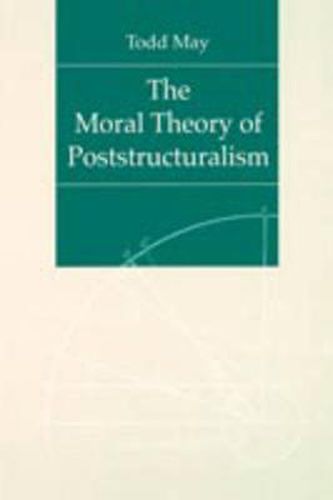Readings Newsletter
Become a Readings Member to make your shopping experience even easier.
Sign in or sign up for free!
You’re not far away from qualifying for FREE standard shipping within Australia
You’ve qualified for FREE standard shipping within Australia
The cart is loading…






Both Anglo-American and Continental thinkers have long denied that there can be a coherent moral defense of the poststructuralist politics of Michel Foucault, Gilles Deleuze, and Jean-Francois Lyotard. For many Anglo-American thinkers, as well as for Critical Theorists such as Habermas, poststructuralism is not coherent enough to defend morally. Alternatively, for Foucault, Deleuze, Lyotard, and their followers, the practice of moral theorizing is passe at best and more likely insidious. Todd May argues both that a moral defense of poststructuralism is necessary and that it is possible. First, he develops a metaethical view of moral theorizing that treats it as a social practice rather than a transcendentally derived guarantee for right action. He then articulates and defends antirepresentationalism, a principle central to poststructuralism. Finally, May offers a version of consequentialism that is consonant both with the principle of antirepresentationalism and with other poststructuralist commitments. In conclusion, he distinguishes morality from an aesthetics of living and shows the role the latter plays for those who embrace anti-representationalism.
$9.00 standard shipping within Australia
FREE standard shipping within Australia for orders over $100.00
Express & International shipping calculated at checkout
Both Anglo-American and Continental thinkers have long denied that there can be a coherent moral defense of the poststructuralist politics of Michel Foucault, Gilles Deleuze, and Jean-Francois Lyotard. For many Anglo-American thinkers, as well as for Critical Theorists such as Habermas, poststructuralism is not coherent enough to defend morally. Alternatively, for Foucault, Deleuze, Lyotard, and their followers, the practice of moral theorizing is passe at best and more likely insidious. Todd May argues both that a moral defense of poststructuralism is necessary and that it is possible. First, he develops a metaethical view of moral theorizing that treats it as a social practice rather than a transcendentally derived guarantee for right action. He then articulates and defends antirepresentationalism, a principle central to poststructuralism. Finally, May offers a version of consequentialism that is consonant both with the principle of antirepresentationalism and with other poststructuralist commitments. In conclusion, he distinguishes morality from an aesthetics of living and shows the role the latter plays for those who embrace anti-representationalism.